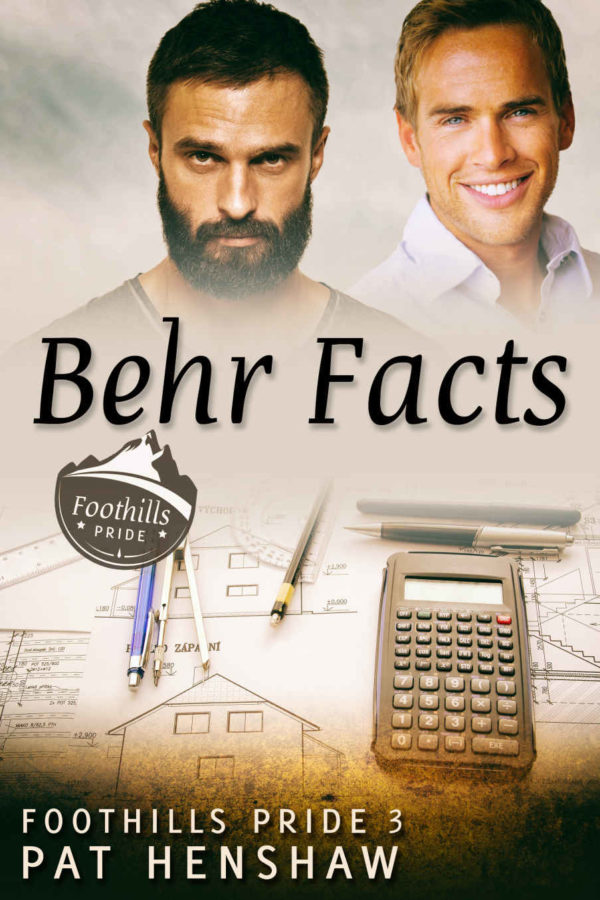Welcome to my weekly Author Spotlight. I’ve asked a bunch of my author friends to answer a set of interview questions, and to share their latest work.
Today, my dear friend Pat Henshaw – Pat Henshaw, born and raised in Nebraska, has lived on the US’s three coasts, in Texas, Virginia, and now California. Before she retired, she held a number of jobs, including theatrical costumer, newspaper features reporter and movie reviewer, librarian, junior college English instructor, and publicist. She loves to travel and has visited Canada, Mexico, Europe, Egypt, and Central America as well as almost all fifty US states.
Now retired, she enjoys reading and writing as well as visiting her older daughter, son-in-law, and grandchildren on the East Coast and playing havoc with her younger daughter’s life in NorCal. She thanks you for reading her books and wants you to remember that every day is a good day for romance.
Thanks so much, Pat, for joining me!
J. Scott Coatsworth: How have you been holding up since the beginning of the year?
Pat Henshaw: Not bad. It occurred to me the other day that writers are uniquely trained to be pandemic survivors because to do our jobs we have to sit by ourselves and conjure up unreal worlds. And that’s what we give our readers—an escape from reality. So I’ve done pretty well once the initial panic was over.
JSC: Initial panic? What do you mean?
PH: Oh, you know, Scott. The initial sky-is-falling response, where we go around like chickens and turkeys and ducks with our heads cut off. Where we buy all sorts of stupid stuff (toilet paper, anyone?) and then realize we’re out of the basics like milk, butter, or soup. Where we bake a lot of bread—like loaf after loaf after loaf—when we haven’t eaten bread in years.
JSC: So you baked bread and hoarded toilet paper?
PH: No, but we did similarly weird things. I even ordered Zatarans rice mix because I remembered when I was a kid listening to the radio ad in rural Louisiana when we visited my grandmother. I don’t particularly like Zatarans, but we ordered it. And my marvelous husband even fixed it for dinner. As for toilet paper, paper towels, and disinfectant wipes, if it hadn’t been for our daughter Becca, we wouldn’t have seen those again for months. We would have been playing Survivor.
JSC: What have you been doing in the interim then?
PH: Well, in the fall, I’d been having problems with the publisher where the Foothills Pride series was housed. So I went on the intrepid publisher search. I was concerned because I wasn’t selling any new content, just my backlist. But after I got the former publisher to take down my books and stop selling them, I did want to get them back in circulation. Self-publishing eight novellas and three holiday short stories was a little too daunting, though.
JSC: Why don’t you tell everyone what the series is about?
PH: Oh, sure, no problem. Like Stephen King talks about in his book on writing, I noticed two things converging and thought this would be a good basis for a book or a series of books. For one thing, a lot of my gay students were writing essays about how they didn’t know what love was or whether they were worthy of it. This saddened me. As far as I’m concerned everyone is worthy of love and should be able to find someone to share love with.
JSC: And the other thing you noticed?
PH: Housing prices in the San Francisco Bay Area were so high that queer men and women were leaving and heading east into Sacramento and even further into the Sierra Nevada foothills. Putting the two things together, I asked myself, what if there were a small former mining town where housing and cost of living prices were very reasonable where they could live? What possibly could go wrong? So Stone Acres, California, was born.
JSC: Is it a real place? If so, where is it?
PH: No, it’s not real physically. It’s only as real as Middle-earth, Narnia, and Hogwarts are real. I set Stone Acres in Calaveras County where Twain put his frog. (“The Celebrated Jumping Frog of Calaveras County” is an 1865 short story by Mark Twain.) At the time, my daughter Becca had a connection to the county, so I heard a lot of stories about it and the people who lived there from her.
JSC: So each story is about a jumping frog?
PH: No, no. Not at all. Each story is about a guy from the Bay Area who moves to Stone Acres and his acclimation to the town while he settles in and since these are romances, finds love. Stone Acres is modeled after those wonderful former mining towns of the Old West that are set up as tourist attractions. Sort of like Columbia, California.
JSC: Columbia? What’s that? And where is it?
PH: Well, it’s complete title is Columbia State Historic Park. Around thirty Gold Rush buildings are preserved there including a hotel, stage coach office, general store, tea shop, school, and other places tourists can visit. The docents are dressed for the times. You can even ride a stagecoach there. Anyway, Stone Acres is like Columbia, but not a state park.
You asked what I’ve been doing since the pandemic started. Well, I’ve been reviving Stone Acres. Happily, JMS Books likes the series enough that they are reprinting it with new covers on the books and a light reediting. What’s in a Name? came out July 15 and Redesigning Max published July 29. The rest of the series books will drop—isn’t that the new term?—one every two weeks through October. In November and December the holiday stories will be republished.
JSC: Wow. You’ve been busy. Is there anything new on the horizon for you besides the Foothills Pride and holiday story releases?
PH: Well, I’m hoping to get a new holiday story out as well as a full length novel finished by the end of the year. We’ll see. And JMS has asked to see more books in the Foothills Pride series, so I’m excited to get started on those. If nothing else, the pandemic has been a kick in my butt to start writing seriously again.
And now for Pat’s latest book: Behr Facts:
Big, burly CEO Abe Behr is furious to discover someone—probably a relative—is embezzling from Behr Construction, a family-run business in the Sierra Nevada foothills outside Lake Tahoe.
To confirm his suspicions, Abe takes the unprecedented step of hiring a non-family accountant, handsome Jeff Mason, to go over the books and help find the culprit. As they talk to Behr relatives and visit construction sites, Abe and Jeff are drawn to each other, bringing out new, softer emotions in workaholic Abe.
Since he has sacrificed romance all his life to build the construction business, Abe’s surprised by his feelings for the handsome Jeff. He’s even more shocked when they come face to face with homophobia in the small foothills community where generations of Behrs have called home. Abe had always thought Stone Acres was a live-and-let-live kind of town.
As he and Jeff get closer, he finds out how wrong he is when he comes out to both family and a community who think he’s making a big mistake. Will being the head of a large, powerful family and a pillar of the community be enough to win Abe his happily ever after with Jeff?
Publisher | Amazon | Universal Buy Link
Excerpt
We went to Monique’s Bakery. If there’s anything I like better than a well-cooked fish, it’s dessert—any dessert. I’ve been tempted a time or two to come up with a three-course dessert meal and then order it at Monique’s. When the company leak was plugged, I decided it’d be my kind of celebration. Three courses of dessert. Heaven.
Guy, Jimmy, Max, and Fredi were sitting down when Jeff and I walked in. I raised my hand and nodded to them. Jeff grabbed my arm and pulled me over to where they were.
“Mind if we join you?” he asked after we’d all said our hellos.
I grabbed a vacated table that hadn’t been bussed yet and added it to the end of their table. Then I cleared off the used dishes and cups to another table. Jeff and I sat across from each other.
As usual, I let the sound of their lunch chatter wash over me. I tried to keep up a little bit, but I was still bothered by Owen’s remarks. Had he always been such a prick, or was it a new thing? I really couldn’t remember him or any of the other guys I worked with saying shit like that. I really couldn’t.
“Don’t you think, Abe?” Jeff asked with a slight smile. I could tell he knew I was off somewhere else and was bringing me back. “Don’t you think there’s been more hate talk around lately?”
I was startled to find my thoughts and the conversation weren’t as far apart as I imagined.
“I don’t get it,” I said. Oops, guess I growled. Jeff was giving me a surprised stare. “I knew a couple of guys were bigoted assholes. I didn’t think I did business with them.”
“What do you think about a boycott?” Jimmy asked me. “Do you think we should stop buying from guys who talk hate trash? Stop selling to them?”
He was the only one who looked worried. His coffee shops served the public. True, he could withhold service from anyone he chose for any reason. Still, he had built up a lot of clients in the area. I knew because whenever I was nearby, I’d stop in for a drink, and his places were always packed.
“Well, you’d be the only one losing business if you turned people away,” I said. “’Sides, how’d it work? You hear someone slur somebody else in the shop. Sure, you have a right to throw them out. But do you take somebody else’s word that somebody is hate talking? I don’t know. Sounds like it’d start a witch hunt to me.”
Everyone was looking thoughtful now.
“Yeah,” Guy chimed in, “same for the bar. Shit, if there wasn’t slam talk, there’d be no talk most nights. I’d be outta business before you know it.”
“It’d be better, in my humble opinion,” Fredi said, his hands flying wide, flashing everyone with his neon-yellow shirt and green suspenders, “if we could re-educate the masses.”
Max leaned in toward him. “And how you going to do it, baby?”
There’s the real question, right? How do you change haters to lovers? Not by yelling them down or beating the shit out of them. I know. I’ve been railroaded into doing both. Doesn’t work. Ever.


